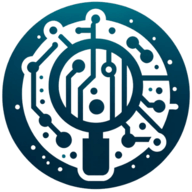3 Screening Candidates for Remote Technical Roles: Adjustments to Make
In the ever-evolving landscape of remote work, screening candidates for technical roles requires a fresh approach. This article delves into the key adjustments organizations need to make when evaluating potential remote employees. Drawing on insights from industry experts, it explores essential aspects such as assessing remote-specific skills, evaluating communication abilities, and emphasizing self-management in the hiring process.
- Assess Remote-Specific Skills and Experience
- Evaluate Initiative and Communication in Remote Candidates
- Emphasize Asynchronous Work and Self-Management
Assess Remote-Specific Skills and Experience
When we screen for remote technical roles, we focus on asynchronous communication skills, self-motivation, and independence along with technical skills. Unlike in-office roles where physical proximity frequently supports development, remote setups require strong written communication skills and an ability to manage time and tasks independently and proactively. We measure these skills through realistic scenario tasks, asynchronous coding challenges, structured interviews, and written tasks that emulate a true distributed environment. Past experiences with remote work, time zone flexibility, as well as familiarity with various collaboration tools such as GitHub, Jira, and Slack, help us determine remote-readiness. Working culture and autonomy are paramount, so we aim to find engineers who meet our technical metrics while being self-sufficient resources in globally diverse and distributed teams.

Evaluate Initiative and Communication in Remote Candidates
At Tech Advisors, screening candidates for remote technical roles requires looking beyond the resume. I focus heavily on how well a person can manage their time and communicate clearly without face-to-face supervision. I've found that online coding challenges and project portfolios demonstrate far more than a list of skills. I recall when we hired a technician who built a smart home dashboard during his free time. He didn't just tell us he was resourceful—he showed it. That kind of initiative matters more in a remote setup than it ever did in person.
I ask direct questions about remote experience. How have they handled team collaboration across time zones? How do they deal with distractions at home? Elmo Taddeo once suggested we ask candidates to walk us through a full remote project they've completed—what worked, what didn't. It tells us how they operate, not just what they know. I also listen closely during video interviews. Do they explain technical ideas well? Do they ask thoughtful questions? In remote work, clarity counts just as much as capability.
Hiring for remote roles isn't just about technical strength. It's about fit and habits. I want to know how someone organizes their day, how they deal with ambiguity, and how they like to stay in touch with teammates. Email, Slack, calls—everyone's different. What matters is that they're aware of their preferences and can adapt. Remote success depends on that kind of self-awareness. So, the biggest adjustment I make is to spend more time on how they work, not just what they've done.
Emphasize Asynchronous Work and Self-Management
For remote roles, we emphasize asynchronous communication and autonomy. We often ask candidates to complete a take-home challenge that mimics real job tasks -- not to test speed, but to see how they document their decisions. We also review GitHub activity or project logs when possible. During interviews, we include questions about remote work habits, timezone management, and self-structuring -- all key predictors of success in a remote-first setup.



